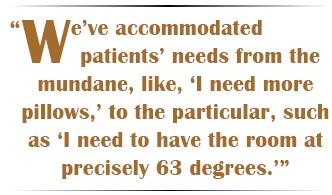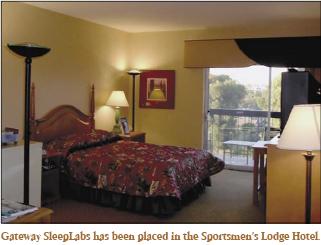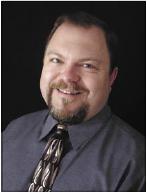|
The Unhealthy Relationship of Obesity and Sleep Apnea by David Pisarra Obstructive Sleep Apnea (OSA) has been linked to weight gain and obesity by several major studies1. It is a vicious cycle and one that causes a downward spiral to poor health. Weight gain causes OSA, which creates decreased energy levels during the day; people tend to address the decreased energy levels by eating high carbohydrate, low protein foods for a quick energy burst, which in turn creates weight gain. The cycle then repeats itself. Anyone who has ever shared a bedroom with a heavy snorer knows the sounds of Obstructive Sleep Apnea (OSA). It is a condition that is characterized by loud, deep, snoring. It is estimated that 38,000 fatal heart attacks each year2 are caused by sleep apnea and the toll the condition takes on the body. OSA has been connected to insulin resistance3, daytime sleepiness, heart attacks, strokes, diabetes, depression and low sex drive by several major studies4. Obstructive sleep apnea is a condition that causes people to stop breathing for 10 seconds to two minutes while asleep, sometimes hundreds of times an hour. It is made worse by weight gain. As people gain weight, particularly in the throat and neck area, the airway becomes smaller and the muscle tone becomes weaker, which causes the throat to close at night when people sleep. People with a body mass index (BMI) of 25 to 30 are at some risk, and those with a BMI over 30 are at severe risk of suffering from sleep apnea5. Men tend to suffer in greater proportion from OSA because men store fat on the abdomen, neck and throat, whereas women tend to store fat on the hips and thighs.The co-morbidity of weight gain and OSA?along with such other conditions as hypertension, chronic obstructive pulmonary disease, ischemic heart disease, cardiovascular disease, and metabolic syndrome?leads to a greater risk of death6.It is stressful on the heart, lungs and endocrine system. In November of 2005, the New England Journal of Medicine7 published a study concluding that Obstructive Sleep Apnea sufferers have a significantly increased risk of strokes and early death from any cause. The study determined that people who have mild to moderate OSA are twice as likely to suffer a stroke, and those with severe OSA are three times as likely to suffer a stroke than non-sufferers. Those people who are overweight (BMI over 258) or obese (BMI over 309) should be tested and treated for sleep apnea. The test, a Polysomnogram, is a simple, non-invasive overnight procedure where the patient?s sleep is monitored by a technician. Small monitor wires are taped to the patient?s body at the head, arms, chest and legs, which allows a computer to record the activity of the brain and body during the night. Patients are also recorded on infrared video so that a doctor can match the tossing and turning at night, with the breathing, heart rate and leg movement of the patient.
?Being located in a hotel, provides a much greater sense of comfort and ease to the patient, and that leads to better test results,? said Dr. Edward Alexander of Gateway SleepLabs. ?My patients prefer to sleep in a full-sized room, with a private bathroom, access to all the hotel facilities and amenities such as pool, Jacuzzi and room service? he continued. Dr. Alexander believes that when a patient is getting a sleep test, it is important that he or she be relaxed and comfortable: ?That is why I prefer Gateway SleepLabs and their hotel setting. It is a familiar surrounding for most people, and it is built to make people relaxed.? Clinically, the setting should mimic home as closely as possible for a patient to achieve the most realistic sleep experience.
Though located in an unconventional setting, Gateway SleepLabs has performed hundreds of sleep tests, hasparticipated in an FDA approved drug trial for Fibromyalgia patients and has a reputation among its patients and doctors as a high quality, extremely comfortable environment. Gateway SleepLabs makes it easy for people to see a doctor. ?We have a Doctor on Wheels program so that patients who are leading hectic lifestyles can meet with a doctor at their convenience. We take care of the pre-approvals from the insurance companies so the patient doesn?t have to,? said Kimberly Macedo, Director of Operations at Gateway SleepLabs. She continues: ?Our goal is to make it easy on the patient to get the test done, and the treatment they need. We?ve accommodated patients needs from the mundane like, ?I need more pillows,? to the particular, such as ?I need to have the room at precisely 63 degrees. Whatever a patient needs, we?re here to make sure it happens. We have flexible scheduling and allow patients to sleep in after their test is over. Unlike hospitals or other labs, we encourage our patients to make use of the facilities after their test. We have late check in and weekend appointments. I like to think of us as a medical concierge for sleep apnea testing and treatment.? Sleep disorders are- under-diagnosed conditions. According to the National Sleep Foundation 2005 report on Sleep, 70 percent of individuals have never been asked about their sleep by their doctors.10 Sleep Apnea sufferers tend to ignore or minimize the degree of their problem. Most men don?t recognize that they snore, or they think it?s not a serious problem. However, disordered sleep was a contributing factor in the death of football great Reggie White. Poor sleep contributes to weight gain, diabetes and its complications, poor work performance, lethargy and a sedentary lifestyle.11 McMichael has since sought treatment for his OSA. ?My wife is much happier and I feel better.? McMichael said.
Gateway SleepLabs is located in Studio City, California, and can be reached at 800-945-SLEEP (945-7533) or on the web at www.gatewaysleep.com.
|

 email to a friend
email to a friend printer-friendly version
printer-friendly version Tests are frequently performed in a hospital setting that has been modified to look like a bedroom or in converted offices. There are other options however, Gateway SleepLabs, located in Studio City, California, is a sleep lab that has been placed in a local landmark hotel, the Sportsmen?s Lodge.
Tests are frequently performed in a hospital setting that has been modified to look like a bedroom or in converted offices. There are other options however, Gateway SleepLabs, located in Studio City, California, is a sleep lab that has been placed in a local landmark hotel, the Sportsmen?s Lodge.
 ?I was always asleep so I didn?t realize my snoring was a problem, butut my wife was complaining about how my snoring was keeping her awake at night,? said patient Al McMichael.
?I was always asleep so I didn?t realize my snoring was a problem, butut my wife was complaining about how my snoring was keeping her awake at night,? said patient Al McMichael. David Pisarra is president and founder of Gateway SleepLabs, and is a Sleep Apnea sufferer. Mr. Pisarra holds degrees from St. John?s College in Annapolis, Maryland, and the University of West Los Angeles. He is a California native and lives in Topanga with his partner, his pampered dachshund and tiny white cat. His weekly column can be read Tuesdays in the Santa Monica Daily Press (please see www.smdp.com for archive copies). He has appeared frequently on local television and is reputed to be an excellent chef. He can be reached by phone at the number listed above or by email at
David Pisarra is president and founder of Gateway SleepLabs, and is a Sleep Apnea sufferer. Mr. Pisarra holds degrees from St. John?s College in Annapolis, Maryland, and the University of West Los Angeles. He is a California native and lives in Topanga with his partner, his pampered dachshund and tiny white cat. His weekly column can be read Tuesdays in the Santa Monica Daily Press (please see www.smdp.com for archive copies). He has appeared frequently on local television and is reputed to be an excellent chef. He can be reached by phone at the number listed above or by email at